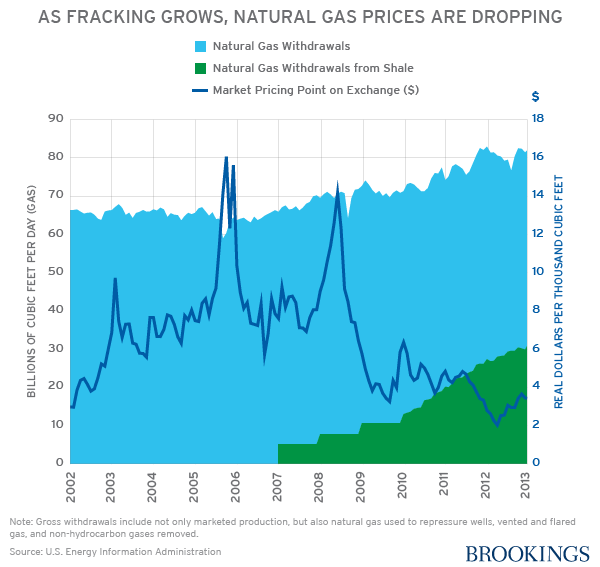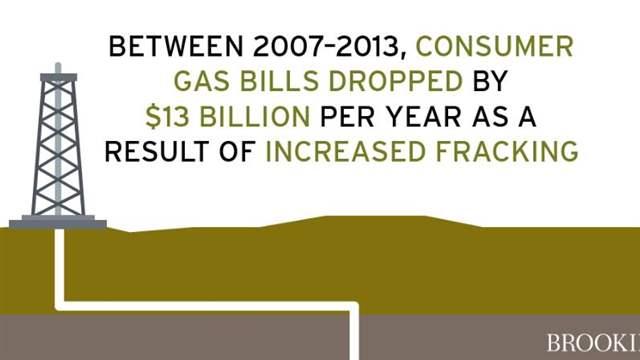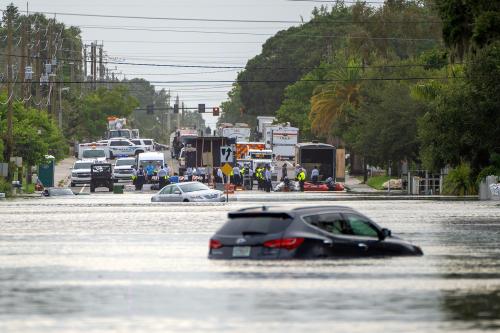Innovations in drilling and hydraulic fracturing (“fracking”) have enabled tremendous amounts of natural gas to be extracted from underground shale formations that were long thought to be uneconomical. But has this shale gas boom translated in an economic boom? According to Catherine Hausman and Ryan Kellogg, who shared the first-ever estimates of broad-scale welfare and distributional implications of fracking as part of the most recent conference of the Brookings Papers on Economic Activity (BPEA), the answer is yes. Here’s why:
As fracking grows, natural gas prices are dropping
The U.S. fracking revolution has caused natural gas prices to drop 47 percent compared to what the price would have been prior to the fracking revolution in 2013.
 Energy consumers are seeing economic gains
Energy consumers are seeing economic gains
Gas bills have dropped $13 billion per year from 2007 to 2013 as a result of increased fracking, which adds up to $200 per year for gas-consuming households. Moreover, all types of energy consumers, including commercial, industrial, and electric power consumers, saw economic gains totaling $74 billion per year from increased fracking.
 All regions are experiencing economic benefits
All regions are experiencing economic benefits
Though one would expect colder states that use natural gas for space heating to benefit most from shale gas, the authors point out that the West South Central region (Arkansas, Louisiana, Oklahoma, and Texas) gained the most at $432 per person in consumer benefits, followed by East North Central (Illinois, Indiana, Michigan, Ohio, and Wisconsin) with $259 per person in benefits. The area to gain the least is the Pacific (California, Oregon, and Washington), but consumers there still benefited to the tune of $181 per year.
Despite economic gains, environmental concerns remain
In addition to exploring the economic consequences of the fracking boom, the authors also review fracking’s environmental impacts and discuss the difficulty facing regulators. They note that while scientists remain concerned about a number of environmental damages caused by fracking, the data collection has not kept pace with the boom in extraction, and a great deal of uncertainty remains regarding pollution from fracking.
To learn more about what fracking means for the U.S. economy, read the full paper by Catherine Hausman and Ryan Kellog here, and watch an interview with BPEA co-editor Justin Wolfers below.
The Brookings Institution is committed to quality, independence, and impact.
We are supported by a diverse array of funders. In line with our values and policies, each Brookings publication represents the sole views of its author(s).




Commentary
The economic benefits of fracking
March 23, 2015